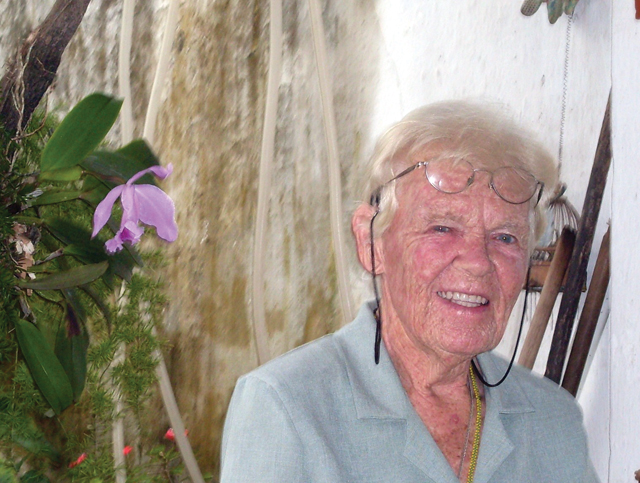Memories of Biafra
By Sr. Mona Kelly
May/June 2013
Return to Table of Contents
Print Article
I was home on leave from our Brazil mission in 1968 when I heard of a request from the Catholic Relief Services for medical volunteers to go to Nigeria. The Biafran war of secession was already raging there. Since I had been missioned in Nigeria before, I asked for the approval of our leadership to offer my services. I applied saying that I could drive any kind of car or light truck and had worked previously in the country. Though my age was above the average of the other applicants, I explained that with all my experi-ence I couldn’t be much younger. And so I was accepted.
Life during the war was dangerous and seeing the terrible condition of so many people, especially the children, was heartbreaking. Yet I had so many amazing experiences and so much joy in seeing families finally able to be reunited.
I remember driving a jeep one night when I came too quickly to a check point. An angry soldier with his gun and his lantern jumped out yelling, “Are you trying to kill me? I am not even from this place!” So I asked him where he was from and he answered, “Okene.” I had worked in that very town years before so I greeted him in his own language. “Tao tao wadi ka.” (Hello! How are you?’)
“You are speaking my language!” he said.
“Was I not the first Matron of the Okene hospital?” I replied, after which my passengers and I went peacefully on our way.
Another time toward the end of the war, I was driving from one refugee camp to another. On the road waving me down was an old woman with two boys aged six and 14. The older boy was carrying half a yam. They had come out of the bush and were trying to reach the refugee camp. The boys’ parents had already run from the federal troops. The three got in the jeep and I dropped them off at the camp.
About three months later I was at this same camp when I was asked to carry some people on my way home. Two boys got in the “motor” as the Nigerians call it. After we went along the road a bit, the older boy spoke up and said, “Sister, you do not remember us!” Then he told me about the time I picked them up and dropped them at the refugee camp. Now the war was over and the Red Cross had located his parents and the boys were going to meet them at a river along the way. Unfortunately, the grandmother was not well enough to travel. We came to the river, got out, and sat down to wait for the grand reunion of the boys with their mother and father.
During those war years I worked with many volunteers from a number of countries. We had the privilege of serving the victims of the conflict and of experiencing the resilience and courage of a people facing unspeakable hardship, loss, and suffering.
Return to Table of Contents
Print Article
